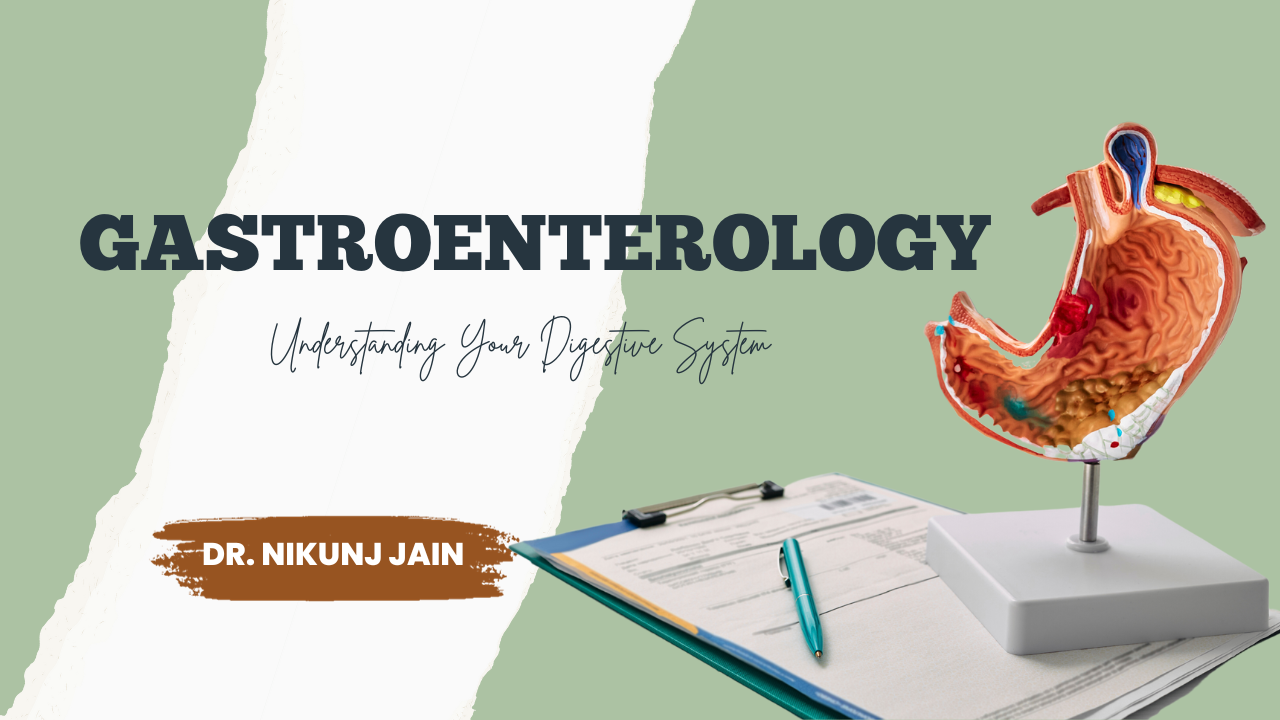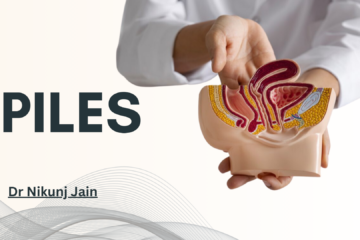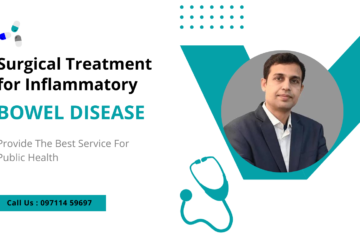Introduction
Gastroenterology may sound like a complex medical term, but at its core, it’s all about understanding and taking care of your digestive system. The digestive system is an essential part of our bodies, responsible for breaking down food, absorbing nutrients, and eliminating waste. In this blog, we will explore the fascinating world of gastroenterology in simple words, demystifying the terminology and processes that occur within our bodies.
The Digestive System – A Complex but Remarkable Journey
The digestive system is a marvel of biological engineering, and it’s responsible for ensuring that our bodies receive the essential nutrients needed for survival. This section will break down the major components of the digestive system in a simple and easy-to-understand manner.
The Mouth – Where It All Begins
The journey of digestion starts in your mouth. When you take a bite of your favorite food, your teeth begin to mechanically break it down, while your salivary glands release saliva that contains enzymes to chemically start the digestion process. This mixture is called chyme.
The Esophagus – The Food Pipe
The chewed and mixed food, known as chyme, travels down the esophagus, a muscular tube that connects the mouth to the stomach. The esophagus uses a rhythmic, wave-like motion called peristalsis to push the food towards the stomach.
The Stomach – A Powerful Processor
Once the chyme reaches the stomach, it encounters a highly acidic environment. The stomach’s gastric juices help break down food even further and kill harmful bacteria. This results in the formation of a semi-liquid substance known as chyme, which is easier for the body to process.
The Small Intestine – Nutrient Absorption Hub
The chyme leaves the stomach and enters the small intestine, where most of the nutrient absorption occurs. The small intestine is a long, coiled tube that’s around 20 feet in length and lined with tiny finger-like projections called villi. These villi are responsible for absorbing nutrients into the bloodstream, which are then distributed to the entire body.
The Large Intestine – Waste Management
What remains after the small intestine extracts all the nutrients is mostly indigestible material. This material enters the large intestine, which is responsible for absorbing water and electrolytes from it. The large intestine also houses a diverse community of beneficial bacteria that play a crucial role in fermentation and waste management.
The Rectum and Anus – Elimination
The final stop in the digestive journey is the rectum and anus. The rectum stores the waste material (feces), and when it’s time, the muscles in the rectum contract, pushing the feces out through the anus in a process known as defecation.
The Gastroenterologist – Your Digestive System’s Doctor
Now that we’ve got a basic understanding of the digestive system, let’s talk about the medical field dedicated to its care and maintenance – gastroenterology.
Who is a Gastroenterologist?
A gastroenterologist is a medical doctor who specializes in the diagnosis and treatment of conditions and diseases related to the digestive system. They are experts in the field of gastroenterology and play a vital role in helping individuals maintain good digestive health.
When to See a Gastroenterologist
Digestive issues are common, and most of them can be managed through lifestyle changes and over-the-counter remedies. However, there are times when you should consider seeing a gastroenterologist:
- Persistent Symptoms: If you have ongoing digestive symptoms like chronic abdominal pain, bloating, diarrhea, or constipation, it’s a good idea to consult a gastroenterologist.
- Family History: If you have a family history of digestive diseases like colorectal cancer, inflammatory bowel disease, or celiac disease, you may be at a higher risk and should consider regular check-ups.
- Age and Screenings: Certain digestive conditions, like colorectal cancer, are more common as you age. Gastroenterologists can perform screenings and recommend preventative measures.
- Unexplained Weight Loss: Significant and unexplained weight loss could be a sign of an underlying digestive issue and should be investigated.
- Chronic Heartburn: If you experience chronic heartburn or acid reflux that doesn’t respond to over-the-counter treatments, it’s time to see a specialist.
Common Digestive Conditions
Gastroenterologists diagnose and treat a wide range of digestive conditions, some of which include:
- Gastroesophageal Reflux Disease (GERD): A condition where stomach acid flows back into the esophagus, causing heartburn and potentially leading to esophagitis.
- Inflammatory Bowel Disease (IBD): This includes Crohn’s disease and ulcerative colitis, which are chronic conditions causing inflammation in the digestive tract.
- Irritable Bowel Syndrome (IBS): A common disorder that affects the large intestine and can cause symptoms like abdominal pain, bloating, and changes in bowel habits.
- Colorectal Cancer: A type of cancer that affects the colon or rectum and is one of the most common types of cancer worldwide.
- Celiac Disease: An autoimmune disorder where the ingestion of gluten leads to damage in the small intestine, hindering nutrient absorption.
- Gallstones: Small, hard deposits that form in the gallbladder and can cause intense abdominal pain.
- Hepatitis: Inflammation of the liver, usually caused by a viral infection.
Diagnostic Tools in Gastroenterology
Understanding how gastroenterologists diagnose digestive conditions is important. Here are some common diagnostic tools they use to identify issues within the digestive system.
Endoscopy
Endoscopy is a common procedure in gastroenterology. It involves the use of a flexible tube with a camera and light on its tip, called an endoscope, to examine the interior of the digestive tract. There are different types of endoscopy procedures, including:
- Upper Endoscopy (Esophagogastroduodenoscopy or EGD): This procedure allows the gastroenterologist to examine the esophagus, stomach, and the first part of the small intestine.
- Colonoscopy: This is used to examine the colon and rectum and is commonly used for colorectal cancer screening.
- Sigmoidoscopy: A shorter version of a colonoscopy that examines the sigmoid colon and rectum.
- Capsule Endoscopy: A tiny camera in a pill that is swallowed to capture images as it passes through the digestive tract.
Imaging Studies
In some cases, gastroenterologists may order imaging studies like X-rays, CT scans, or MRIs to get a better look at the digestive organs. These can help identify issues such as obstructions, tumors, or structural abnormalities.
Blood Tests
Blood tests can provide valuable information about the functioning of the digestive system. For example, liver function tests can assess how well the liver is working, while tests for specific antibodies can help diagnose conditions like celiac disease.
Biopsy
If an abnormality is found during an endoscopy, a gastroenterologist may perform a biopsy. This involves taking a small tissue sample for examination under a microscope to determine if there are any signs of disease or cancer.
Maintaining Good Digestive Health
Now that you know more about the digestive system and the role of gastroenterologists, let’s explore how you can maintain good digestive health.
Diet and Nutrition
What you eat has a significant impact on your digestive health. Here are some dietary tips to keep your digestive system in top shape:
- Fiber: A diet rich in fiber from fruits, vegetables, and whole grains can help regulate bowel movements and prevent constipation.
- Probiotics: These are “good” bacteria that promote a healthy gut. You can find probiotics in foods like yogurt or in supplement form.
- Hydration: Drinking enough water is essential for the proper functioning of the digestive system. It helps soften stool and prevents constipation.
- Limit Processed Foods: Processed and high-sugar foods can lead to digestive issues. Opt for whole, unprocessed foods whenever possible.
- Portion Control: Overeating can cause discomfort and put additional strain on your digestive system. Practice portion control to avoid these issues.
Lifestyle Changes
Besides diet, there are several lifestyle changes that can positively impact your digestive health:
- Regular Exercise: Physical activity helps keep your digestive system running smoothly and can prevent constipation.
- Stress Management: High-stress levels can lead to digestive problems. Techniques like yoga, meditation, or deep breathing exercises can help manage stress.
- Avoid Smoking and Excessive Alcohol: Both smoking and excessive alcohol consumption can harm your digestive system. Quitting smoking and moderating alcohol intake can significantly improve your digestive health.
- Adequate Sleep: Getting enough sleep is crucial for overall health, including your digestive system. Aim for 7-9 hours of quality sleep per night.
Regular Check-ups
Preventative care is essential for maintaining good digestive health. Schedule regular check-ups with your healthcare provider, especially if you have a family history of digestive diseases or are at higher risk due to age.
Be Informed
It’s also essential to be aware of the symptoms that may indicate a problem and seek medical attention promptly.
Conclusion
Remember that your digestive health is a crucial aspect of your overall well-being. Gastroenterologists are here to help when needed, ensuring that your digestive system continues to function optimally.
Understanding your digestive system is the first step towards maintaining good digestive health and enjoying a better quality of life.
Meet Your Doctor

The Best Laparoscopic Surgeon in Indore
Dr. Nikunj Jain is a renowned Gastro & Minimal Access Laparoscopic Surgeon.
He is a Surgical Gastroenterologist, Consultant Surgeon at Apollo Hospital, Indore having expertise in laparoscopic, Laser, and Robotic Surgery.
You can be confident that with Dr. Nikunj Jain your well-being is in the capable hands of a highly-skilled Minimally Invasive Laparoscopic & RoboticSurgeon. Dr. Nikunj Jain strives to treat his patients with an honest, straightforward, and caring nature in a safe and comfortable environment.
Dr. Nikunj Jain has been awarded Dr. B. Ramamurthi National Gold Medal by National Board of Examination.
drnikunjjain@gmail.com
Email your reports
+91-97114-59697
Call Now to book Appointment
Head Quarter Building
3rd Floor, Satya Sai Square, Vijay Nagar, Indore – MP
Apollo Hospital
Sector-D, Scheme No 74C, Vijay Nagar, Indore – MP
Read More –
Understanding GI Cancer Surgery: A Comprehensive Guide –https://drnikunjjain.com/understanding-gi-cancer-surgery-a-comprehensive-guide/
Understanding Hernia: Causes, Symptoms, Diagnosis, and Treatment –https://drnikunjjain.com/understanding-hernia-causes-symptoms-diagnosis-and-treatment/
GERD and Acid Reflux: Causes, Symptoms, and Treatment – https://drnikunjjain.com/gerd-and-acid-reflux-causes-symptoms-and-treatment/



